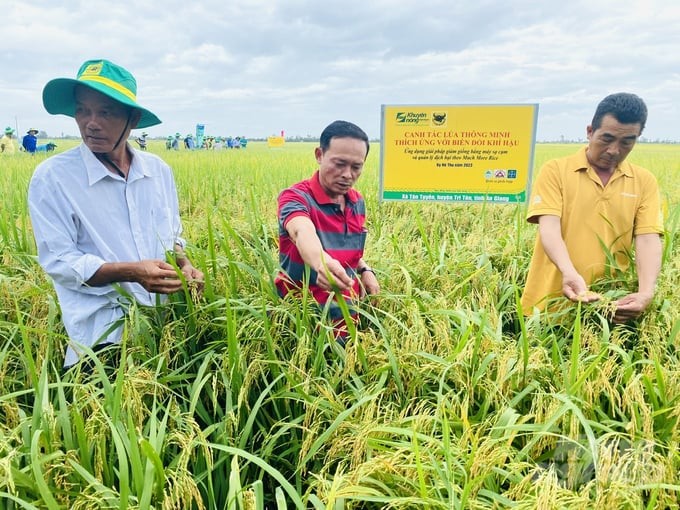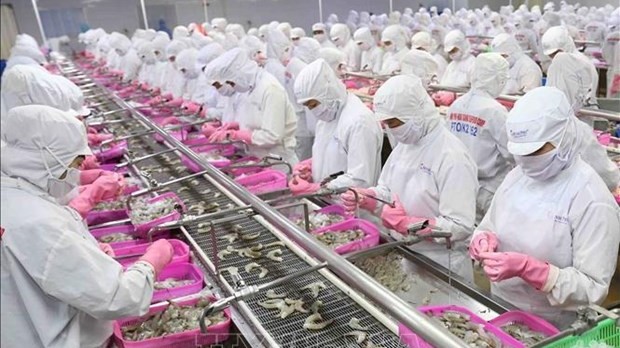
Establishing strong brands is crucial for enhancing competitive value of Vietnamese agricultural products
Latest
 |
| Vietnamese agricultural products are present in most major global import markets. (Photo: nongnghiep.vn) |
Mr. Nguyen Nhu Tiep, Director of the Department of Quality, Processing, and Market Development, stated that Vietnam possesses significant advantages in terms of geographical location, soil fertility, climate, and the creativity of its farmers. However, despite this, there are challenges such as low competitiveness, high production costs, inconsistent quality, and the absence of established brands.
Vietnam has nearly 11,000 OCOP (One Commune One Product) products, most of them have exceptional quality. Yet, their brand recognition in the international market remains low. Although the export value of agricultural products is considerable, issues persist regarding quality and competitiveness.
According to Mr. Tiep, establishing strong brands is crucial for enhancing the competitive value of Vietnamese agricultural products.
Ms. Nguyen Mai Huong, Deputy Director of the Center for Rural Development, Institute of Policy and Strategy for Agriculture and Rural Development (IPSARD), disclosed that Vietnam's agricultural export turnover reached 53.22 billion USD in 2022. Among these, 11 groups of products achieved export turnovers exceeding 1 billion USD, including timber and wood products, shrimp, coffee, rice, rubber, cashew nuts, and fruits and vegetables, with seven groups exceeding 3 billion USD.
"Vietnamese agricultural products are present in most major global import markets, such as the US, EU, Japan, yet up to 90% of these products are exported in raw form, fetching lower export prices compared to similar products from other countries.
Especially concerning is that 80% of the exported agricultural produce lacks branding, logos, individual labeling, and full integration into the global value chain," stated the IPSARD Deputy Director.
Representatives from IPSARD noted a growing interest among businesses in participating in the national brand program, with an increasing number of enterprises each year. Over eight assessment periods in 2022, 325 products from 172 enterprises were recognized as national brands. However, less than 30 enterprises are involved in agricultural, forestry, and aquatic products.
According to Ms. Huong, while the issue of building and developing agricultural product brands is extensively discussed, it lacks specificity, an overarching strategic program tailored for agricultural products, or effective coordination between involved parties. Consequently, only two products, which are major national agricultural products, "Vietnam Rubber" (in 2016) and "Vietnam Rice" (in 2018), have been registered for intellectual property protection in Vietnam.
Among these, "Vietnam Rice" is owned and managed by the Ministry of Agriculture and Rural Development. As of October 2021, Vietnam Rice's trademark has been protected in 22 countries. However, due to legal complications in managing and utilizing the certification trademark, no enterprise has been granted the right to use this certification in production and commercialization so far. The registration/renewal of protection overseas encounters difficulties due to a lack of funds for registration and maintenance stemming from underutilization of the brand.
The "Vietnam Rubber" trademark is managed by the Vietnam Rubber Association. As of November 2022, usage rights have been granted to 89 products from 31 factories of 19 enterprises and have been protected in Chinese Taipei, China, India, Cambodia...
Additionally, the "Vietnam High-Quality Coffee" trademark has applied for registration at the Intellectual Property Office. Moreover, the Ministry of Agriculture and Rural Development has issued a framework plan for national products related to freshwater shrimp, edible mushrooms, and medicinal mushrooms, etc.





















